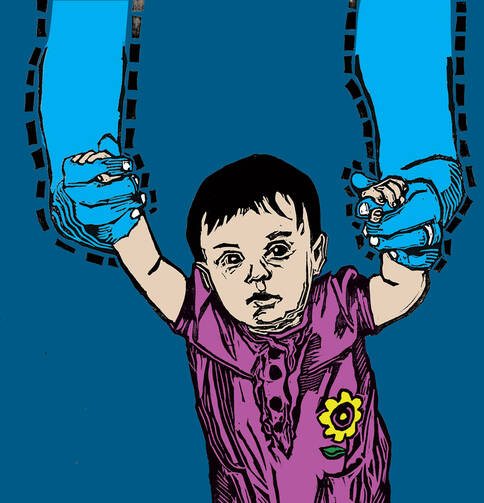The anticipation was stifling. For days we knew that our little one would be leaving us forever, on her way to a place where she would be a part of a family forever. We readied ourselves as best we could. We threw her a going-away party, though at only 9 months she knew nothing of the life-changing event that lay ahead of her. The party, we knew, was merely an attempt to ease the pain of letting her go out into an unfamiliar world without the safety of the arms she had known since foster placement in our home at the age of one week.
From her perspective, the drive to her new mother could as well have been a trip to the grocery store. But this day would end very differently from any other day in her short life. And though I knew the day would come and that it was the best thing for her, my inability to make her understand was one of the most difficult circumstances I have ever had to confront. Giving her away caused me anguish not only because we would miss her, but because I felt I was blindsiding her, setting her up only to knock her little legs from under her. I feared that in her eyes, I was abandoning her. After leaving my first foster baby to her new mother, my body underwent an intensity of emotions unlike anything that I had experienced in my life.
For nine months, I had worked to help this child learn how to bond with her “forever” mother. From the beginning of our relationship, I knew that she would leave. However, as was necessary over those months, she became a part of me and I a part of her. When I left her in the care of her new mother, my heart felt it was betraying this part of “us.” For days after, I cried tears of grief unlike any I have shed in years; yet, simultaneously, I experienced an overwhelming joy for her as she embarked on her wonderful new adventure.
Some people ask why I became a foster parent if it causes so much pain. Why would anyone invite this type of anguish into his or her life? And why will I do it again? But I see these emotions—pain, suffering, wondrous joy—as evidence that God has called me as a Catholic, a Christian and, most of all, as a mother. When I was given the gift of motherhood, I received with it the grace necessary to understand that being a mother requires me not only to teach and serve, but also to let go and suffer loss. Why then, should I confine these graces to raising my five birth children? I am called to serve all of God’s children. I am called to be also a mother to the motherless.
Many people wanted to know how I could give her away. The answer for me is simple. She was never mine to begin with—not because she was a foster child but because she, like each of my own children, is God’s child. She belongs ultimately to God.
This is not to say that foster care is required of every Christian parent. This is to say that if you are a Christian, God is calling you. Your call and mine will be different, but one way or another, we are all called to serve. And when we answer God’s call—and by doing so enter into the very heart of Christ—we are filled with the grace necessary to rely on our faith to carry us through, not away from, life’s challenges. But if we remain idle, fearful of the emotional pain attached to entering the emotional struggles of the world, we will not fulfill God’s call, and we will undoubtedly feel an emptiness that is insatiable by any other means.
At times, we measure gratification with perceived success. Did we succeed? How much did my family influence the life of this beautiful little girl? We may never know. But we do know that for the first nine months of her life, she was the baby of our household and a member of our parish community. She was our universe. She was an answer to a prayer for fulfillment. This child filled an empty spot that God had created just for her.








